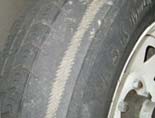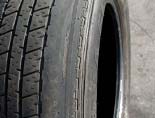Tips and Advice on Buying a Used Car
First, be prepared. Ask colleagues and friends, compare options, gather information data on the make and model you’re interested in. Examine reliability ratings. Try to determine maintenance costs and upkeep, etc. Your goal should be to narrow your search to one or two models. Why? Because if you just enter a car dealership without knowing what you want, chances are more likely that you won’t be happy with your purchase. Later you may find out that it’s simply not exactly what you wanted, that it is too heavy on petrol, has no air conditioning, expensive on parts or whatever.
So, narrow your choice down to only one or two models because when you test-drive a few different cars of the same model, it will be much easier for you to compare their condition and pick the best one. To your surprise you will find that you quickly become your own car expert at not only the current price of these cars but also about the particular mechanical faults etc and how to look out for them.
Second: Don’t buy based on what you’ve been told because it may not always be the truth. Give the car a preliminary examination yourself before getting an expert. You may not need the expert. If you are happy with what you see then is the time to spend money wisely.
Third: If you are buying from a private seller it is essential to get a look at the Vehicle Licensing Certificate (Log Book). Make sure that the Vehicle Identification Number (VIN) matches that on the car. The VIN is usually on the passenger side of the dash behind windscreen and also under the bonnet compartment. Make sure the sellers’ name is on the log book. You can also see how many owners the vehicle has had.
If you are considering purchasing from a dealer make sure that before you agree on a price that you also agree on the type of warranty you are getting. Is it a three month or six months warranty? Is it an engine and gearbox only or a bumper to bumper warranty? Do not rely on a salesperson’s verbal promises. Whatever is promised, get it in details in writing.
Finally, in relation to car value and price your aim is to look for a car in good condition for a reasonable price. If you are choosing between a relatively cheap car that might have been in an accident in the past or was poorly maintained, needs some repair, etc. and more expensive one that is in excellent condition, It can often be that the more expensive one is the better buy. Don’t think they sell it cheap because they don’t know the price or they simply want to clear their stock. If they sell it cheap, there could be something wrong with it. However, there are bargains to be got so look around and become your own price expert. The cost of purchasing from a dealer is usually a lot more than purchasing privately. However, the advantage is that you get a warranty from the dealer but it will be unlikely that anything will go wrong in three or six months if you get a reliable car inspection engineer to carry out a thorough inspection.
For expert car or van inspection services call 087 245 3097 today
![]()



